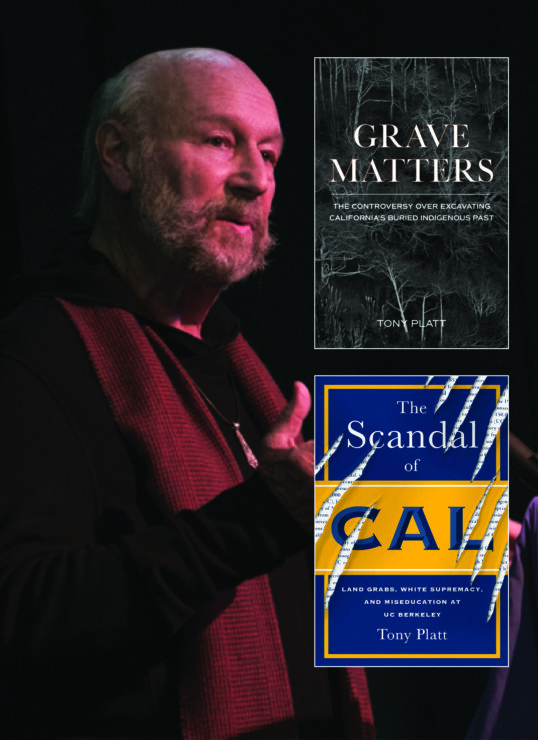Two publications, both published by Heyday, bookend and frame Tony Platt’s talk. One book begins in a remote area of northwest California, the other in the Bay Area’s metropolis.
In Grave Matters: The Controversy over Excavating California’s Buried Indigenous Past (2011, 202) Platt investigated the global trade in everything Indian that during the late nineteenth and early twentieth centuries stocked public and university museums from Moscow to Berkeley. He was surprised to learn that the University of California, Berkeley – his alma mater and workplace for many years – had played a significant role nationally in the pillaging of Indigenous homelands, including the location of his family cabin in northern California. A decade later, in a new edition of Grave Matters, Platt reflects on how Cal, as the university is known locally, persisted in its defiance of law and morality, and had failed to reckon with its sorrowful past. “The long struggle for repatriation is only part of a larger history still to be told,” he observed.
That “larger history” is the subject of The Scandal of Cal: Land Grabs, White Supremacy, and Miseducation at UC Berkeley (2023, 2025). Platt’s investigation into the university’s despicable hoarding of ancestral remains and cultural artifacts led him to a wider and deeper exploration of the university’s origins and development: its active participation in the dispossession of Native homelands and its significant role in the violence of conquest; the dominant influence of private wealth on the university’s governance, then and now; the centrality of militarism in Cal’s DNA, from the Indian Wars to Hiroshima and beyond; and the production of knowledge in textbooks, popular narratives, and public history that legitimated a racialized “California Story.”
An in-person and virtual presentation by Tony Platt, author, historian, and Distinguished Affiliated Scholar at UC Berkeley’s Center for the Study of Law and Society
